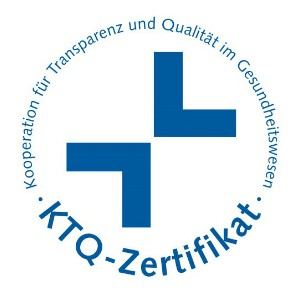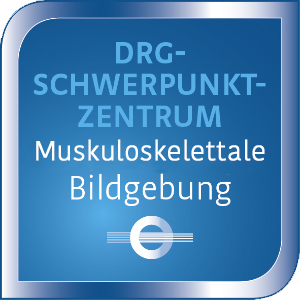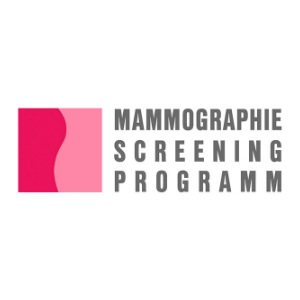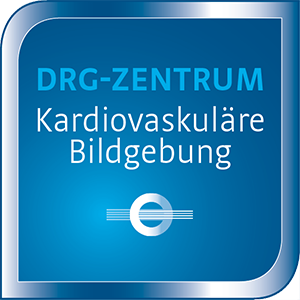Nuclear medicine
Nuclear medicine uses radionuclides to image various organs and perform functional tests. Certain radionuclides can also be used for therapeutic purposes.
In diagnostics, the artificially produced radionuclide Technetium-99m (Tc-99m) is used most often. It has a half-life of about 6 hours, so it is very short-lived, and is generally injected intravenously. Only a very small amount of the radionuclide is needed, so the radiation load is very low. There are really none of the typical side effects of contrast agents due to the very low doses in nuclear medicine. The radionuclide is bound to special carriers, depending on the issue, so that individual organ systems and their functions can be targeted for the examination.
The radiation emitted by the radio nuclide is captured by a special camera (gamma camera), which converts this radiation into electrical impulses and uses them to produce an image (scintigram) or obtains functional data using a computer system (functional scintigraphy.) In the latter case, conclusions can be drawn about the function of an organ (e.g., kidney function.)
Sectional images can also be produced in order to obtain especially high resolution. To do so, the patient lies on the examination bed and the head of the gamma camera rotates around the body part being examined (SPECT). The Radiology Baden-Baden practice as a SPECT-capable camera of this type.
We perform the following examinations:
- Thyroid scintigraphy
- Cardiac scintigraphy with SPECT (myocardial scintigraphy)
- Bone scintigraphy (partial and full-body) including multi-phase scintigraphy and SPECT
- Kidney scintigraphy (separate side clearance)
- Pulmonary scintigraphy
- Sentinel lymph node scintigraphy
Typical application of nuclear medicine
Thyroid scintigraphy
Typical Indications
- Clarification of cold or hot nodules
- Clarification of indeterminate changes in thyroid lab results
- Tumor clarification
Thyroid scintigraphy, diagnostics, and therapy are performed in close cooperation with our registered colleagues. Every third adult in Germany is affected by local complaints of thyroid enlargement or consequences of hypo- or hyperthyroid function. Many people also have nodules in the thyroid gland. These can cause hyperthyroid function (hot nodules) or, in rare case, may be malignant (typically cold nodules.) This activity can be detected only by means of thyroid scintigraphy. Thyroid diseases often occur more frequently in families. Not all changes to the thyroid are immediately evident. Clarification even without symptoms is thus also recommended, for example by taking a thyroid level (TSH), ultrasound exam, scintigraphy, or possible fine-needle biopsy of the thyroid. The entire spectrum for clarification of thyroid changes is offered by Radiology Baden-Baden—ultrasound scans of the thyroid, thyroid scintigraphy, thyroid lab value measurements, and fine-needle puncture to assess the tissue, if needed.
The process uses a low dose of X-ray radiation and may be performed only by a nuclear medicine specialist.
Cardiac scintigraphy
Typical Indications
- Cardiac function, cardiac blood flow
- CHD
Many people suffer from disease of the heart muscle, mostly caused by changes to the coronary arteries. Whether constrictions are present in the coronary arteries that could lead to problems with the blood supply to the heart muscle can be evaluated without invasive intervention using cardiac or myocardial scintigraphy. This can give assurance if there are problems with the heart and/or a corresponding risk profile. If a heart catheter exam has revealed critical constrictions of the coronary arteries, then myocardial scintigraphy can help to decide whether therapy, such as a stent, is really necessary or whether the blood flow to the heart muscle is still sufficient.
The process uses a low dose of X-ray radiation and may be performed only by a nuclear medicine specialist.
Bone scintigraphy
Typical Indications
- Bone diseases, tumors
- Bone inflammation
- Rheumatoid diseases
Painful changes to the joints can be caused by arthritis or by a rheumatic disease. Skeletal or bone scintigraphy can be used to detect changes to bone metabolism before they are visible on X-ray images. Evaluation of whether an artificial joint replacement has come loose, an undetected fracture exists, or bone inflammation, tumors, or metastasis are present are also possible. The entire skeletal system can also be evaluated.
The process uses a low dose of X-ray radiation and may be performed only by a nuclear medicine specialist.
Kidney scintigraphy
Typical Indications
- Kidney function
When kidney function or the passage of urine through the urinary tract is limited, the kidneys can be evaluated using scintigraphy on each side without invasive intervention. No other examination method is this easy to use.
The process uses a low dose of X-ray radiation and may be performed only by a nuclear medicine specialist.
Pulmonary scintigraphy
Typical Indications
- Pulmonary embolism
In case of pulmonary embolism, the blood flow through the lungs can be evaluated using scintigraphy on each side without invasive intervention.
The process uses a low dose of X-ray radiation and may be performed only by a nuclear medicine specialist.
Sentinel lymph node scintigraphy
Typical Indications
- Imaging of the sentinel lymph node for therapy planning
- Preoperative planning for breast cancer or melanoma
The lymph node that is the first one in the region downstream of a tumor, and therefore typically the most likely to be affected by a tumor disease, is called the sentinel lymph node. If it is not affected, then the probability that other lymph nodes are affected is relatively low. By imaging the sentinel lymph node, it is possible to show this lymph node selectively as an aid for the therapist to remove it safely, and for further examinations. If it is not affected, then more extensive lymph node removal can be avoided in the majority of cases, along with the potential consequences of lymphedema, etc.
The process uses a low dose of X-ray radiation and may be performed only by a nuclear medicine specialist.





